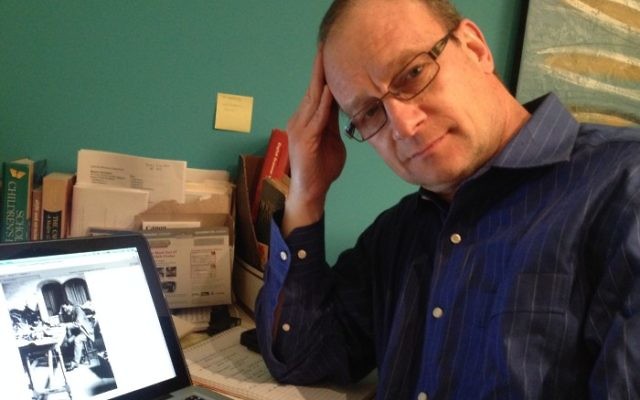Judaism’s Path to Healing
There may be little immediate prospect of healing nation’s political divide, but Rabbi Laurence Rosenthal says that Judaism offers resources for those willing to make the effort.
Dave Schechter is a veteran journalist whose career includes writing and producing reports from Israel and elsewhere in the Middle East.
I was going to write this column about how I had worked election day and nights in years past, and how I spent this year’s election and its aftermath in front of the living room television, remote and laptop in hand, my tuches leaving an indentation in a comfortable chair.
But the reply I received to a question intended for another piece prompted a rewrite.
I wrote on Nov. 14, 2016, that Jewish supporters of Hillary Clinton were “sitting a sort of shiva, mourning the death of an ideal, their vision of America,” while supporters of Donald Trump “presumably were toasting with ‘mazel tov cocktails’” (a malapropism used by a Trump surrogate).
Going back to it, I like the way that column read and found parts to be relevant four years later.
“Clinton’s true believers are struggling to understand the societal forces behind Trump’s stunning victory and the motivations of his supporters, people with whom they feel little in common and, if honest, with whom relatively few have meaningful conversation,” I wrote.
So, four years later, are those who were sitting shiva now dancing the hora?
One thing is for sure: Many of those who voted for Joe Biden regard those who backed Trump as “people with whom they feel little in common, and if honest, with whom relatively few have meaningful conversation.”
So, aside from Biden’s pledge to be the president of all Americans, those who voted for him and those who didn’t, is there any hope for, if not national unity, at least reasonable efforts toward healing a rift that grows even wider and deeper — including within the Jewish community?
I put the question to Rabbi Laurence Rosenthal of the Ahavath Achim Synagogue, who also is president of the Atlanta Rabbinical Association.
“It isn’t the job of the president or any elected official to ‘unite’ us,” Rosenthal replied. “It’s our job.” The good news is that, “We Jews are uniquely poised to be partners in this healing process because of the vast spiritual and ritual resources at our disposal.”
He offered the following four items. (These are his words, lightly edited.)
Le’Shon Hara: We must stop calling each other dumb, idiots and racists. We might be all those things, but this language isn’t helpful and only leads to further division. People have the right to their thoughts and questions. When we create spaces where somebody is yelled at for sharing a point of view, asking a question, or sharing their fear and anxiety, we push them further into silos that will not only entertain those ideas but grow them and manipulate them.
Shema: We must be better listeners. And not just listen for the inflammatory statements so we can rebut and show off our own talking points, but to hear past people’s fears, resentment and frustration and get to the real issue. Will this be easy? No! Will it work all the time? No! But listening [only] when it serves us isn’t listening.
B’Tzelem Elohim: We need to stop seeing [those with whom we disagree] as the enemy, assuming people’s behavior simply because they hold a point of view. Each person on this planet is created in the image of God. Just because they hold up a sign or attach a bumper sticker to their car doesn’t mean that they hold all the vile and hateful things that you have in your mind about that statement or political character. As we learn in “Pirkei Avot,” [The Ethics of Our Fathers] “judge all men with the scale weighted in his favor.”
Introspection: Jewish prayer has many moments of introspection into which we find and connect with something greater than ourselves. The verb for prayer in Hebrew is written in the reflective verb form, which means that “to pray” in Hebrew means, literally, “to pray oneself” or, better understood [as] “to judge oneself.” We need more moments of introspection where we turn off the 24-hour news and ask some of the larger questions about ourselves and others.
Rosenthal concluded his prescription saying, “These are just a few of a treasure trove of concepts that can help our society heal and unite. The first step is to find the partners in this quest from all stripes – religious, atheists, humanists, secularists, etc., and start by hearing what ideas and concepts from their traditions and/or sacred rituals they want to employ for healing and see how we can work together to bring it about.”
From the rabbi’s mouth to all of our ears.




comments